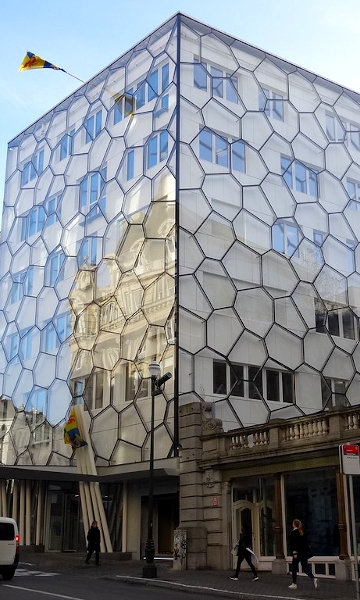
The smart city ambition for Brussels
First of all, the "smart city" ambition for the Region must mean that citizens and public authorities are able to fully benefit from the opportunities offered by information and communication technologies and investments are made in it for the benefit of social, environmental and economic improvements: to widen access to the richness of the digital world for the benefit of wider society; to improve quality, performance and interactivity of public services; to reduce costs and the consumption of resources; to improve and simplify contact between citizens and the administration.
After the Next Tech Plan, which will be evaluated at the end of 2019, the Region must focus on an interdisciplinary digital policy, transcending the divisions of competences, promoting synergies beyond the boundaries of the Region (notably the link with the Wallonia Clusters Initiative) and taking advantage of the financing and collaboration opportunities available at European level.
It is not simply a question of supporting the digital transition of businesses but also and more particularly, creating a "smartcity.brussels" ecosystem, that will bring economic opportunities to our entrepreneurs, start-ups and SMEs, and is synonymous with innovative collaboration between public bodies and the private sector.
In concrete terms, beyond the launch of the ICT training-employment centre, the economic component of "smartcity.brussels" will notably be achieved by increasing public financing for research and creation of digital companies, by accelerating digitalisation of companies and introducing a cluster centred on coding and computer programming skills, particularly in the field of video gaming.
As far as artificial intelligence is concerned, notably, the Government intends to:
- support artificial intelligence in the interests of the ecological transition of the economy (for example, better management of mobility, transport efficiency, forecasting pollution peaks, etc.);
- support a Brussels regional policy structured around the data
- continue to push Brussels' strategic sectors in their transformation (e-health, fintech, logistics, etc.);
- support businesses in their intelligent transformation (develop expertise at hub.brussels, push via regional Incubators, etc.).
Additionally, through the Brussels edition of Printemps Numérique, the Government will pursue its awareness initiative and visibility programme for new technologies among the general public while showcasing the accomplishments and endeavours by companies, universities and artists involved in this field.
Blockchain technology projects will be developed in planning, environment, civil status or employment support.
The Region will continue its support in "health tech" innovation, through hub.brussels and Innoviris as well as its backing for the esanté.brussels platform for its role in facilitating and developing the e-health ecosystem.
The Government will increase, through a management contract, its support to screen.brussels with the aim of guaranteeing a structuring effect for the creative industry and the audiovisual sector. In order to augment synergies between the four screen.brussels operators, a strategic steering committee will be set up, bringing together the management bodies of the entities involved (screen.brussels fund, visit.brussels, hub.brussels et finance.brussels).
Moreover, the Government will develop free regional wifi, through a real network of public digital spaces (PDS). At the end of the term, at least one fully equipped (equipment and staff) PDS will be present in each municipality.
The Government will consolidate the regional fibre optic network and will connect the primary school network to the regional fibre optic infrastructure. It will provide for an extension to public amenities and will collaborate with Vivaqua and Sibelga with the aim of facilitating the roll out of the regional fibre optic infrastructure.
To improve quality, performance and the interactivity with public services, the Government will develop a public platform to host all applications relating to the smart city, both public and civic initiatives, and to increase the opportunities for interoperability and exchange of data to the benefit of the city and its inhabitants.
The Government will champion an "open data" policy for public data with the aim of developing solutions for society (e-health, mobility, administration, etc.), much like intelligent systems that respect privacy, which offer real social, environmental and economic added value in tasks that the Region must complete relating to mobility, waste and site management, etc.
Finally, the new technology deployments relating to data transfer (5G and others) are rolled out respecting the precautionary principle and following evaluation from an environmental, public health, economic efficiency, data security and privacy perspective.
The smart city is oriented to its citizens and businesses… and listens to their ideas.
Get involvedPowered by creaxial